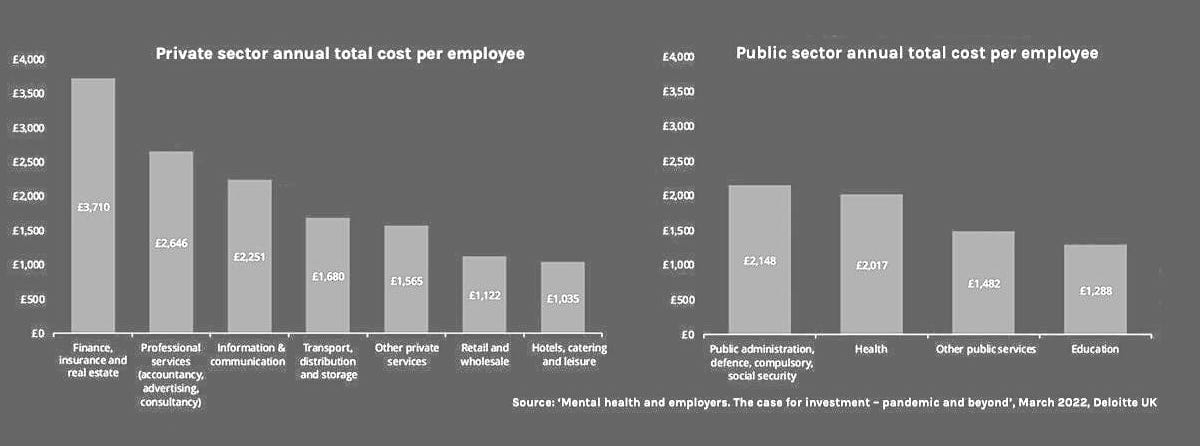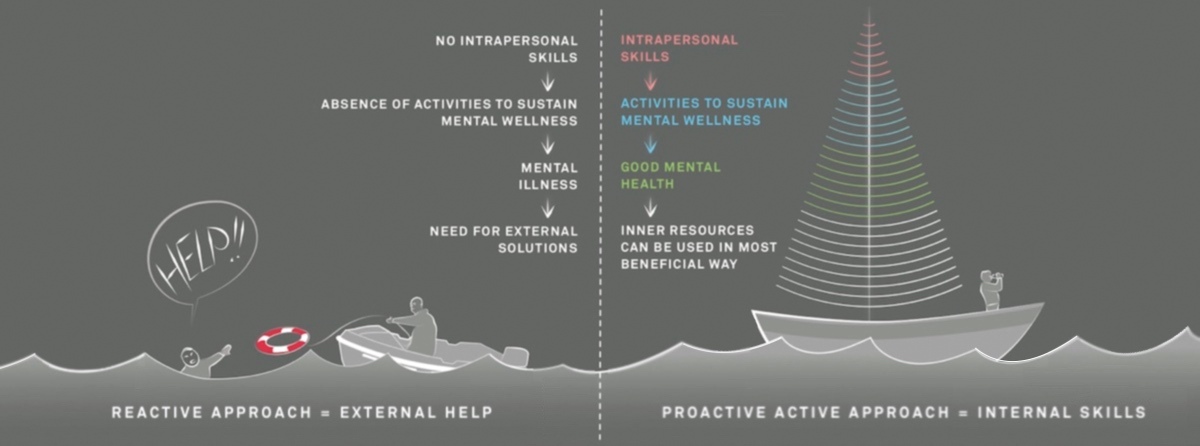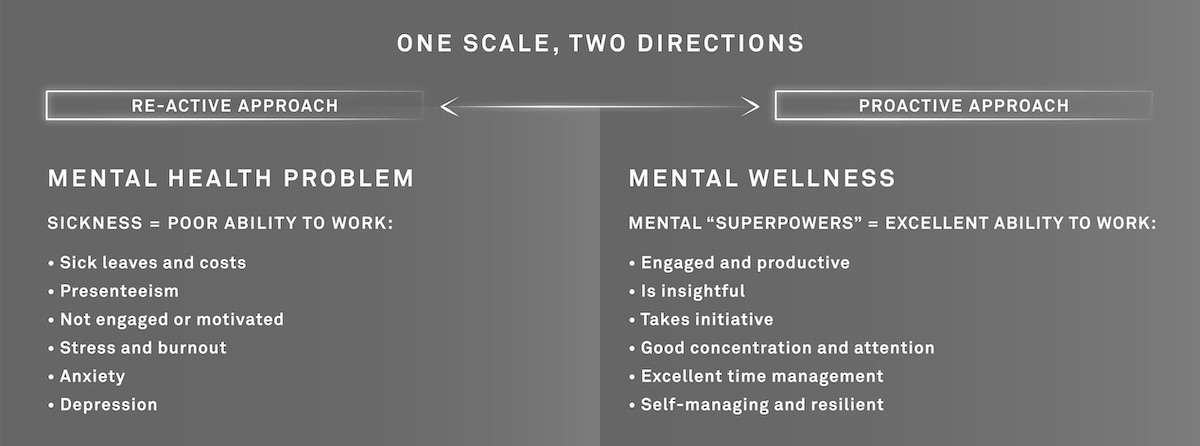Mental health problems affect hundreds of millions of people around the world. Mental health issues at work are quite diverse and often influenced by the specific work environment, job role and also by different individual factors.
Among the prevalent challenges, work-related stress stands out as a leading contributor to mental health concerns, as 9 out of 10 employees are stressed.
Prolonged, unmanaged stress can further culminate in employee burnout.
Burnout is not yet a mental illness; it is an occupational phenomenon characterized by emotional exhaustion, cynicism, and reduced productivity and employee engagement levels.
Burnout never happens overnight and is fully preventable (see the video below). However, too few people are aware of this, as the preventative mental health approach is relatively new. So, take a moment to watch the video.
Depression, marked by feelings of hopelessness, low energy, and disinterest in work, can also arise, exacerbated by long working hours and long exposure to stress and burnout.
Depression is already a medical condition that alters brain chemistry, causing prolonged feelings of sadness, hopelessness, and reduced interest or pleasure in activities. All depression disorders are treatable, and the sooner one starts the recovery process, the better.
Additionally, anxiousness and worry lead to different anxiety disorders and often strengthen untreated ADHD. Inner reactivity that causes and amplifies those problems in the work context can originate from various sources, including job or income insecurity, fear of public speaking or making mistakes.
Bad work culture and toxic human relations are often contributing factors to mental health issues. Also, workplace bullying and harassment are, in addition, genuine concerns, with the potential to result in conditions like chronic stress, anxiety, depression, and even post-traumatic stress disorder (PTSD).
Addressing all mental health issues requires access to mental health first aiders, professional therapists, and, if needed, psychiatrists.
But what if you could prevent all the problems? We say NOW you can! See the video!
However, our core message is that all work-related mental health issues are preventable. Focus on prevention makes an excellent business case and allows for reducing costs and improving employee engagement.
How high is mental health cost?
The World Health Organization (WHO) claims that depression and anxiety disorders are today the most common mental health issues worldwide and estimates that mental health issues result in an annual loss of $1 trillion in productivity globally.
The Deloitte UK report ‘Mental health and employers. The case for investment – pandemic and beyond', from 2022, has highlighted the actual costs for employers in the UK (see the graph below).
These days, per employee, the annual mental health loss varies between £1035 ($1345 or 1150€) and £3,710 ($4820 or 4,120€).
As this cost has many hard-to-spot components, it is mostly unacknowledged by employers.

Only when both employers and employees start prioritizing the prevention of mental health issues can they reduce these mental health costs. This becomes possible when mental wellness training and self-evaluations become a norm.
By taking a preventative approach and promoting mental wellness as something positive, workplaces can reduce stress and mental health issues.
The prevention of mental health issues in workplaces needs a mindset shift from reactivity towards proactivity.

To promote prevention and make it easy for employers and employees alike, we have developed systematic proactive mental wellness training that everyone can benefit from.
Training your mental wellness here equips individuals with practical intrapersonal skills. Such inner skills are needed to lead thoughts, control imaginations, and identify and manage different emotions. When intrapersonal skills are great, leading individual behavior becomes effective.
Proactive mental health training reduces stress and nips mental health issues in the bud while it also increases resilience, productivity and job satisfaction.
By taking a preventative approach and promoting mental wellness as something positive, workplaces can reduce stress and mental health issues.
More than this, with a proactive mental wellness approach, people can discover their hidden powers and start to use their minds efficiently and thus become more creative and take more responsibility (see the graph below).

On the left side, you find the current reactive mental health approach. On the right side are the benefits of the proactive mental wellness application.
Prevention is most efficient when workplace-wide. Here, systematic mental wellness training offers excellent opportunities to discover how to live a healthy, meaningful and productive life.
Let us remind you that, besides proactive mental wellness trainings, it is vital to provide accessible resources and professional support for those who are already struggling with mental health disorders. Allocation of partners (therapists, psychologists, psychiatrists) is here wise.
We dream of a world where prevention is systematic and mental health problems are prevented. That is why we work on the mental wellness revolution!
As an employer, you should know that workplace-wide proactive mental wellness allows you to see tenfold ROI.
A proactive mental wellness approach is now systematic, easy and affordable
By inviting your team to participate in proactive mental wellness training, leaders and HR professionals can see workplace-wide application of strategies to reduce stress, prevent burnout, and reduce anxiousness before those turn into serious mental health issues.
All Wellness Orbit mental wellness trainings come with efficient self-evaluation tests before and after each training. This allows everyone to have individual feedback and discover what actions to take to stay mentally fit and well.
|




